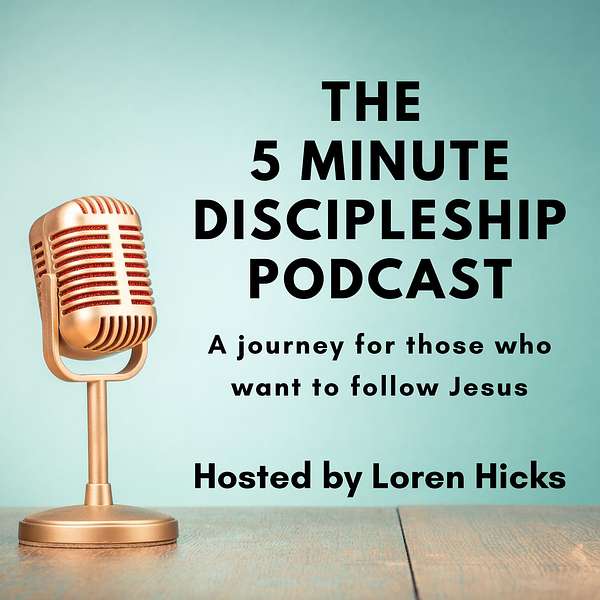
The 5 Minute Discipleship Podcast
Daily episodes are hosted by Pastor Loren Hicks. This podcast will challenge you to go deeper into your Christian faith. The goal is to inspire you to be a fully devoted follower of Jesus Christ. Episodes have been downloaded over 600,000 times.
The 5 Minute Discipleship Podcast
#1,113: How Do We Define Morality?
Some of the basic questions of life are what is right, and what is wrong? What is good? And what is bad? What is morality, and do you, as a person, have morals?” Is there a code of ethics for everyone to ascribe to? Morality in its simplest definition is “the distinction between right and wrong, but should we all define what is moral the same way?
Main Points:
1. Throughout history people, society, and culture have wrestled with these questions. For the Christian, we live with a biblical worldview. We believe the Bible is God’s Word to us. It is the final authority for belief, life, and practice. It is our compass and our roadmap. It shows us how to live and how to please God.
2. Without a belief in the authority of the Bible, we are left to our own thoughts, ideas, and opinions. We make ourselves the god and authority over our own lives. Morality then becomes relative. Right and wrong become inventions of our own minds. After all, who are you to tell me what is moral, and what is not?
3. As Christians, our worldview, which is how we see and interpret the world, comes from the Bible. The Christian worldview is founded upon two principles: God exists, and he has spoken to us in his word. The Bible, which contains God’s revealed moral will in His law and commandments, is His revelation to His people. As such, the Bible becomes our source of definition of right and wrong.
Today’s Scripture Verses:
2 Timothy 3:16 - “All Scripture is breathed out by God and profitable for teaching, for reproof, for correction, and for training in righteousness.”
2 Peter 1:21 - “For no prophecy was ever produced by the will of man, but men spoke from God as they were carried along by the Holy Spirit.”
Quick Links:
- Donate to support this podcast
- Leave a review on Apple Podcasts
- Get a copy of The 5 Minute Discipleship Journal
Connect on Social